Plant Power: The Best Vegan Protein Sources
Jan 12, 2016 20:33
A perceived lack of protein in veganism is what dissuades many from embracing a plant-based diet. The common belief, held especially among athletes, is that you can't consume protein without eating meat and dairy. This has been proven to be a fallacy in recent times. There are dozens of vegan sources enriched with protein, and to state otherwise is simply a myth.
Millions of people all over the world are adopting vegan diets for a variety of reasons. Ranging from health to concerns for animal welfare, they're enjoying all the benefits that come with plant power. And of their utmost concern is ensuring that they get the perfect 'balanced diet.' Those words have become something of an anomaly, given that there is so much contradicting information out there to sift through.
There is no great secret to achieving a balanced diet. It revolves around discipline, meticulous planning, and making the right food choices. And it isn't as difficult as you might have imagined. Today, we're going to focus on vegan foods that are rich in protein. Some of them even rival a carnivore's staples in chicken and eggs.
Before we begin, let's debunk a couple of protein myths. These are held in esteem by many people, and taken as gospel. In actuality, they are simply untrue, and can lead to poor dietary choices. First of which is the belief that you can't consume too much protein. That isn't true, and eating too much protein can actually have adverse effects on your health. Your body cannot store excess protein, and transforms it into fat.
Secondly, many people believe that you can't get all of your essential amino acids from a plant-based diet. This isn't strictly true, either. Essential amino acids, of which there are nine, are those that your body cannot formulate by itself. These are the ones that we must consume to avoid undernourishment, as our body can make the rest by itself. However, recent studies suggest that these aren't quite as important as we once thought. And, consuming a variety of protein sources is believed to help make up for a perceived deficiency. As we'll get to later, there's one little grain that boasts a whopping amount of all nine essential amino acids.
If you're still concerned about your protein intake after reading this post, then there are things you can do. Other than incorporating more of the below foods into your meals, you could try supplementing them. There are a lot of vegan protein powders available now, such as grass fed whey protein. They could help you make up the difference. With that in mind, let's explore some of the best sources of vegan protein out there. By utilizing these staples at meal times, you can create the elusive balance that you crave. Your mind, body, and soul will thank you for it.
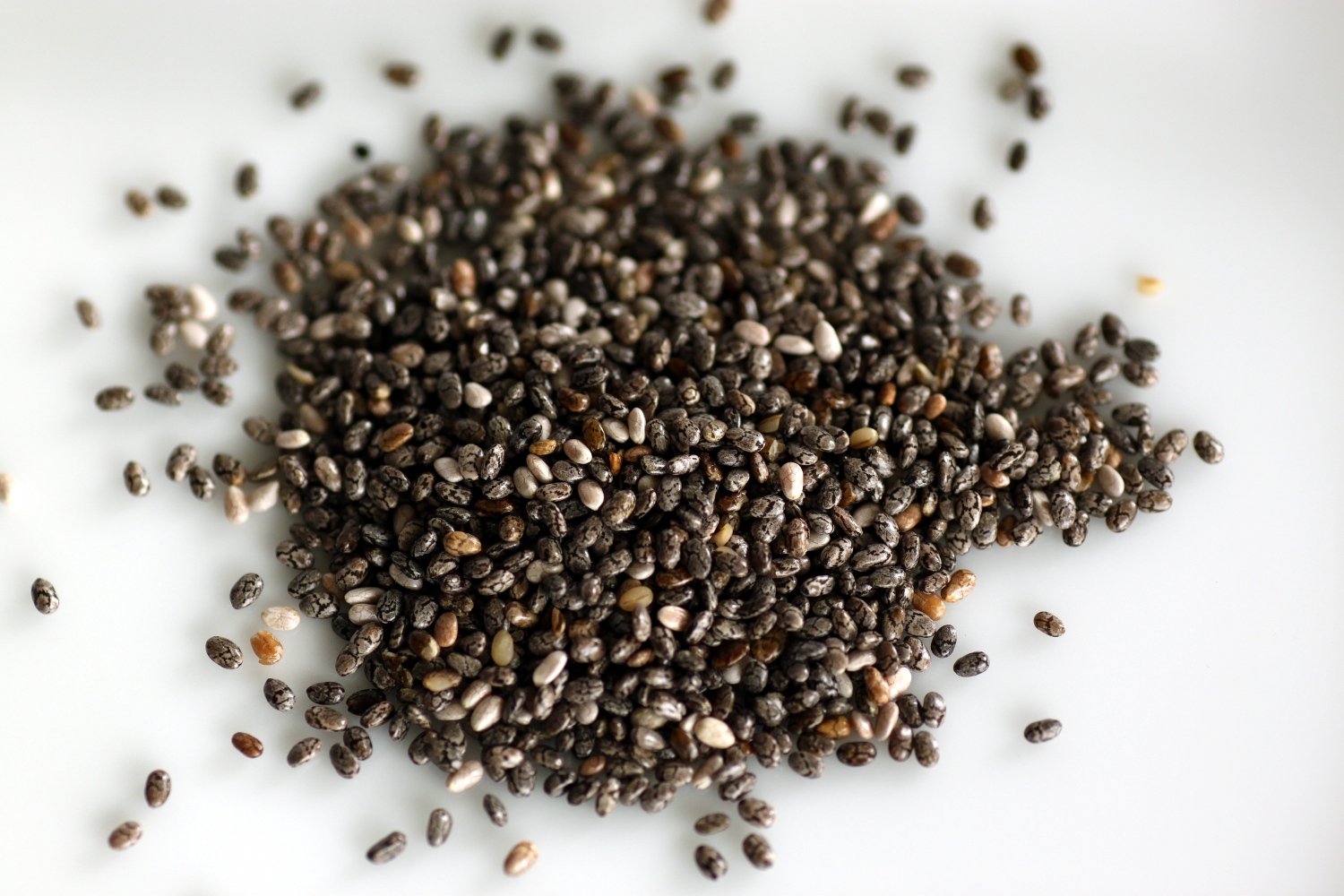
www.flickr.com
They're loaded with protein, fiber, and Omega-3 fats, plus dozens of vitamins and minerals. If you want to boost your meals or snacks, chia seeds could be just what you need to make your food go further. Loaded with antioxidants; these magic little seeds are thought to reduce the chances of developing Type 2 diabetes. What are you waiting for? Go toss a handful in your breakfast smoothie or salad box at lunch. You'll thank us for it later.
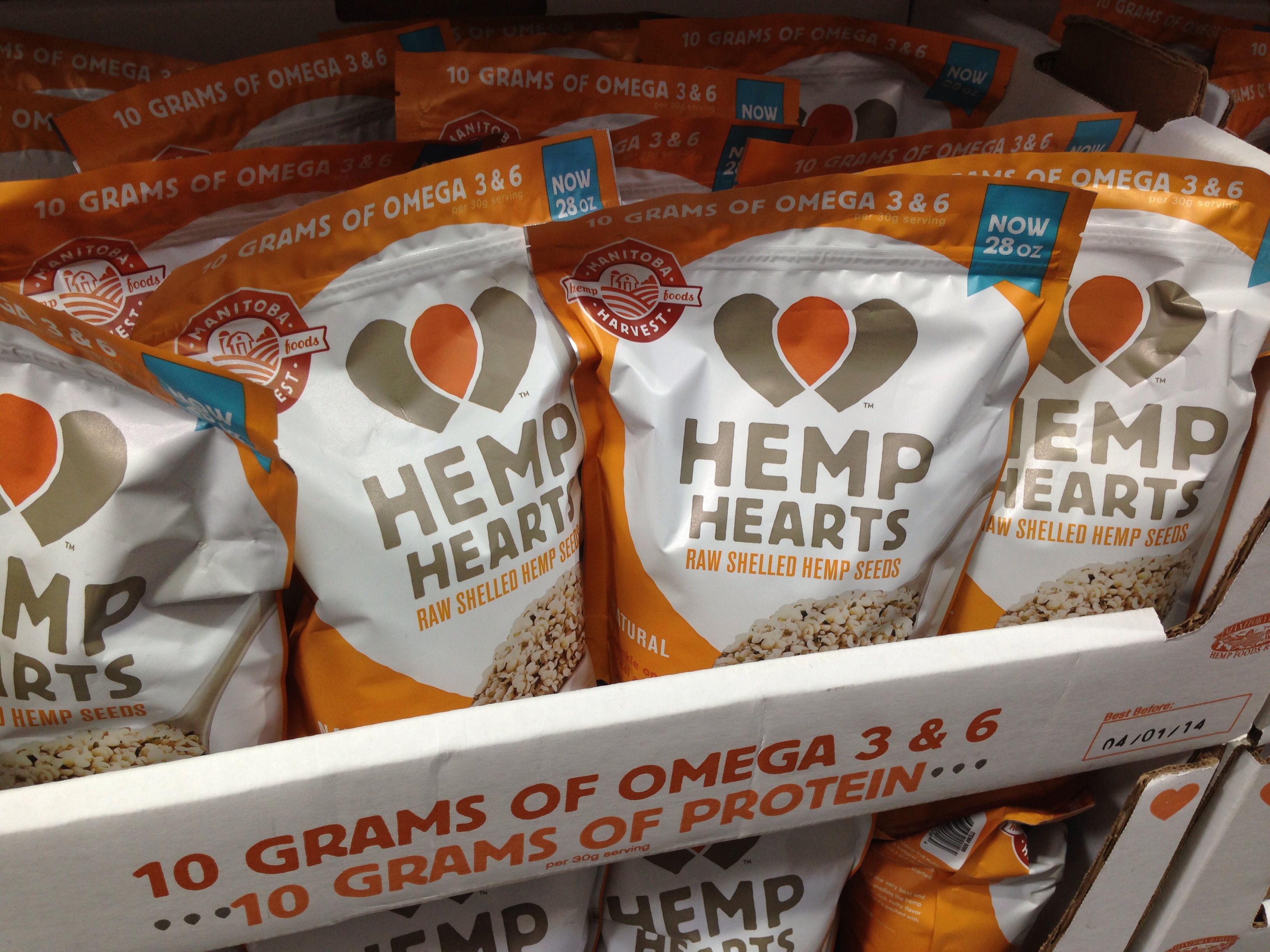
www.flickr.com
But that isn't the only thing hemp has to offer. It has enormous amounts Omega-6 and Omega-3 fatty acids, the kind you get from oily fish. Not only that, but it's incredibly versatile. You've probably seen hemp hearts, hemp milk, and hemp seeds at your local grocery store. They're everywhere now, thanks to the realization that they're a complete source of nutrition. Oh, and if you were still on the fence, hemp is actually great for the environment, too. The plant is able to purify the soil around it, making pesticides redundant.
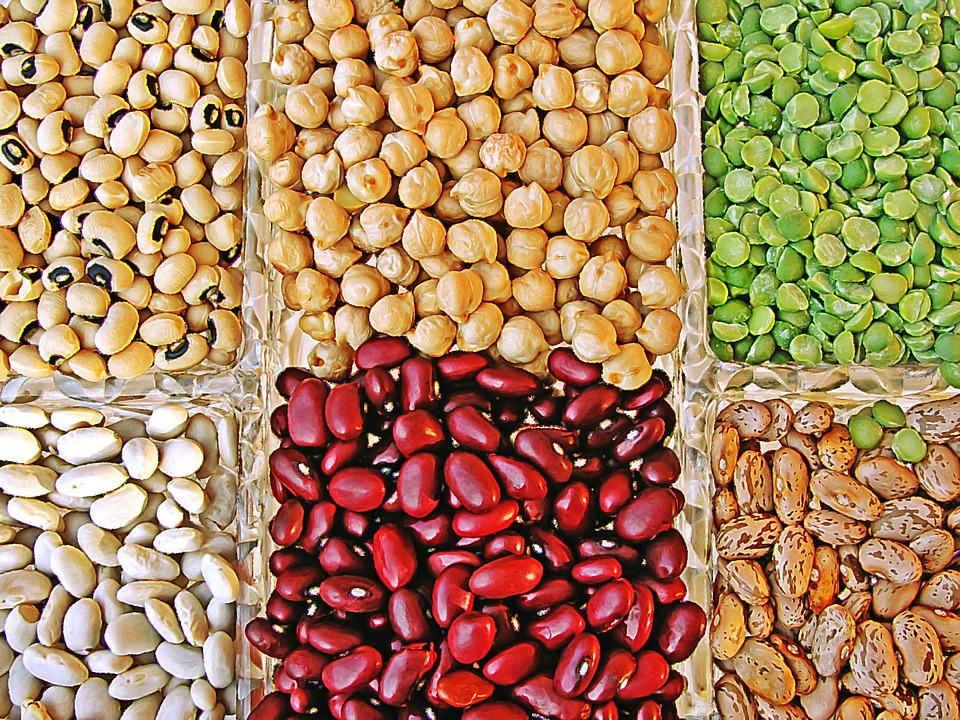
www.pixabay.com
Well, they are certainly not to be feared. These little legumes pack a powerful nutritional punch. They're great in soups and casseroles or as the leading star of a delicious daal curry. They're incredibly easy to prepare and cook, and can be coupled with almost anything. Not only are they filled with protein, but they have other health benefits too. They can help lower cholesterol, restore heart health, and even stabilize your blood sugar. Trust us, they aren't too good to be true, either.
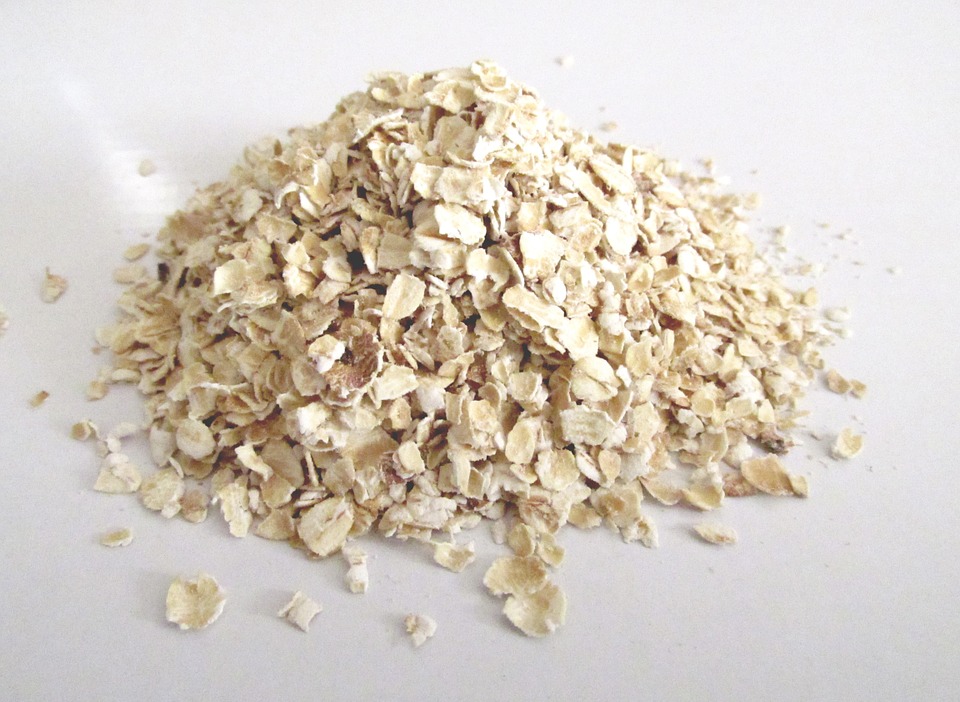
www.pixabay.com
As if there weren't enough reasons to consume oats, then wait until you hear about this. Oats are thought to be the only food source that can actually reverse the effects of heart disease. On top of that, they're known to lower cholesterol and blood pressure. In short, they're almost everything you need to maintain good heart health. A fantastic gluten-free breakfast option. Give them a whirl.
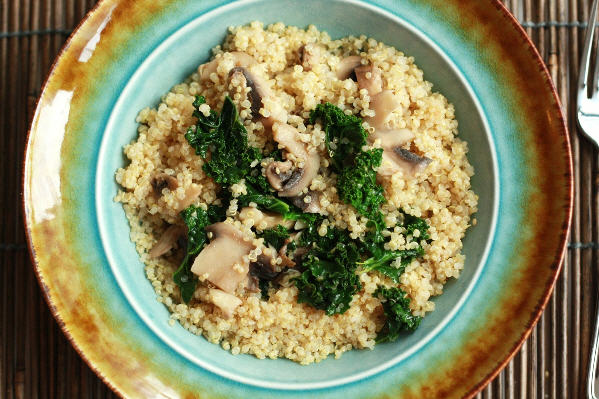
www.flickr.com
Where do we begin when we talk about the other benefits of quinoa? Well, it contains almost twice as much fiber as any other grain, and is known to help energy levels soar. The Incas, who discovered the miracle grain, believed that it was the secret behind their warrior's strength. Hey, I'm not going to argue with them. You can also find a whole host of other nutritional benefits, including iron, magnesium, and other antioxidants. What are you waiting for?
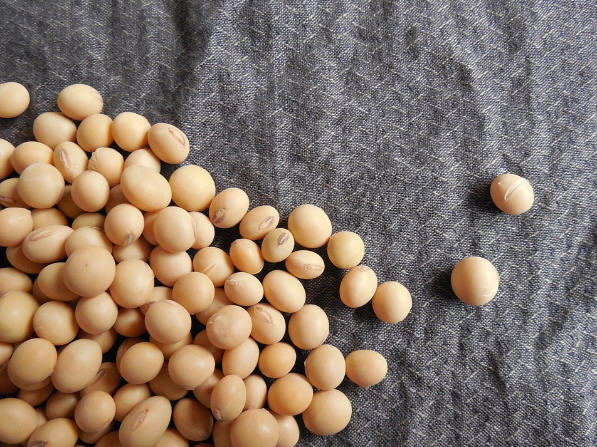
www.pixabay.com
Soy contains an enormous amount of protein and supplements that as an excellent source of insoluble fiber. You can find soy in a number of products that you may already know and love! Tofu, the vegetarian alternative to meat, is made from mashed up soybeans. You can find soy milk readily available in all the supermarkets now, which makes a fantastic substitute for dairy.
I'm just scratching the surface of vegan protein sources here. There are literally hundreds of other food products that can give you all the protein you need. Whatever you do, just make sure you don't gloss over the miracle grain. It'll change your life. Next time somebody questions your protein intake, now you have a few counterpoints to hurl right back at them. Happy eating!
Millions of people all over the world are adopting vegan diets for a variety of reasons. Ranging from health to concerns for animal welfare, they're enjoying all the benefits that come with plant power. And of their utmost concern is ensuring that they get the perfect 'balanced diet.' Those words have become something of an anomaly, given that there is so much contradicting information out there to sift through.
There is no great secret to achieving a balanced diet. It revolves around discipline, meticulous planning, and making the right food choices. And it isn't as difficult as you might have imagined. Today, we're going to focus on vegan foods that are rich in protein. Some of them even rival a carnivore's staples in chicken and eggs.
Before we begin, let's debunk a couple of protein myths. These are held in esteem by many people, and taken as gospel. In actuality, they are simply untrue, and can lead to poor dietary choices. First of which is the belief that you can't consume too much protein. That isn't true, and eating too much protein can actually have adverse effects on your health. Your body cannot store excess protein, and transforms it into fat.
Secondly, many people believe that you can't get all of your essential amino acids from a plant-based diet. This isn't strictly true, either. Essential amino acids, of which there are nine, are those that your body cannot formulate by itself. These are the ones that we must consume to avoid undernourishment, as our body can make the rest by itself. However, recent studies suggest that these aren't quite as important as we once thought. And, consuming a variety of protein sources is believed to help make up for a perceived deficiency. As we'll get to later, there's one little grain that boasts a whopping amount of all nine essential amino acids.
If you're still concerned about your protein intake after reading this post, then there are things you can do. Other than incorporating more of the below foods into your meals, you could try supplementing them. There are a lot of vegan protein powders available now, such as grass fed whey protein. They could help you make up the difference. With that in mind, let's explore some of the best sources of vegan protein out there. By utilizing these staples at meal times, you can create the elusive balance that you crave. Your mind, body, and soul will thank you for it.

www.flickr.com
Chia
The jury might still be out on chia. Those little seeds that you've been throwing in salads and smoothies are thought to be good for your health. But, there is a sector of people that are trying to undermine the nutritional benefit of chia. So, let's stick to the facts, shall we? First of all, 'chia' is a Mayan word that directly translates to 'strength.' So... that's a good start, huh?They're loaded with protein, fiber, and Omega-3 fats, plus dozens of vitamins and minerals. If you want to boost your meals or snacks, chia seeds could be just what you need to make your food go further. Loaded with antioxidants; these magic little seeds are thought to reduce the chances of developing Type 2 diabetes. What are you waiting for? Go toss a handful in your breakfast smoothie or salad box at lunch. You'll thank us for it later.

www.flickr.com
Hemp
Hemp is the little cousin of the marijuana plant. Don't worry, though, consuming hemp won't land you a federal sentence. As a matter of fact, it has been freed from the shadow of its relative and forged a name of its own. Namely, as one of the most nutritionally potent plants out there. Hemp seed is, quite simply, a jack of all trades. Given its inclusion on this list, you guessed it, it's jam packed full of protein.But that isn't the only thing hemp has to offer. It has enormous amounts Omega-6 and Omega-3 fatty acids, the kind you get from oily fish. Not only that, but it's incredibly versatile. You've probably seen hemp hearts, hemp milk, and hemp seeds at your local grocery store. They're everywhere now, thanks to the realization that they're a complete source of nutrition. Oh, and if you were still on the fence, hemp is actually great for the environment, too. The plant is able to purify the soil around it, making pesticides redundant.

www.pixabay.com
Legumes
You might have heard that word before, but are unsure what it really means. It's the name of a family of plant that includes lentils, beans, and peas of all varieties. And they're packed full of nutrition and low in calories. They're almost a dream food, especially if you're concerned about your protein intake. You probably don't need schooling on how to use beans and peas in your diet, but lentils can be a little trickier. Many people buy them but aren't entirely sure how to use them.Well, they are certainly not to be feared. These little legumes pack a powerful nutritional punch. They're great in soups and casseroles or as the leading star of a delicious daal curry. They're incredibly easy to prepare and cook, and can be coupled with almost anything. Not only are they filled with protein, but they have other health benefits too. They can help lower cholesterol, restore heart health, and even stabilize your blood sugar. Trust us, they aren't too good to be true, either.

www.pixabay.com
Oats
Yup, the ones that you use for your porridge. Oats are a nutritional powerhouse; jam packed full of health benefits. You might be well aware of them as a massive source of fiber, but it's a dream protein source, too. They're also incredibly low calorie, and boast a bunch of vitamins and minerals. At least, provided they aren't tampered with to make processed cereals. If you didn't have a reason to wake up to a big bowl of oatmeal, well, now you do.As if there weren't enough reasons to consume oats, then wait until you hear about this. Oats are thought to be the only food source that can actually reverse the effects of heart disease. On top of that, they're known to lower cholesterol and blood pressure. In short, they're almost everything you need to maintain good heart health. A fantastic gluten-free breakfast option. Give them a whirl.

www.flickr.com
Quinoa
The 'miracle grain,' as it has become known, is a fantastic source of... well, just about everything. Pound for pound, it's probably the most nutritious food source in the world. And it's pronounced keen-wah, by the way. Remember earlier when we spoke about essential amino acids? Well, try this on for size. Quinoa packs all nine of the essential amino acids into that tiny little grain. Unbelievable stuff. On top of that, it's one of the richest protein sources in the world.Where do we begin when we talk about the other benefits of quinoa? Well, it contains almost twice as much fiber as any other grain, and is known to help energy levels soar. The Incas, who discovered the miracle grain, believed that it was the secret behind their warrior's strength. Hey, I'm not going to argue with them. You can also find a whole host of other nutritional benefits, including iron, magnesium, and other antioxidants. What are you waiting for?

www.pixabay.com
Soy
What once could only be tracked down at dedicated health stores is now seemingly everywhere. There are soy products on every supermarket shelf and on every restaurant menu around the world. They are all products that come from the humble soybean. This versatile little bean boasts tremendous nutritional benefits. They have been given something of a bad name in recent years, as people claim that soy is bad for your health. That isn't true, though. You only need to avoid them if you suffer from a soy allergy, which is quite a common ailment.Soy contains an enormous amount of protein and supplements that as an excellent source of insoluble fiber. You can find soy in a number of products that you may already know and love! Tofu, the vegetarian alternative to meat, is made from mashed up soybeans. You can find soy milk readily available in all the supermarkets now, which makes a fantastic substitute for dairy.
I'm just scratching the surface of vegan protein sources here. There are literally hundreds of other food products that can give you all the protein you need. Whatever you do, just make sure you don't gloss over the miracle grain. It'll change your life. Next time somebody questions your protein intake, now you have a few counterpoints to hurl right back at them. Happy eating!







































































